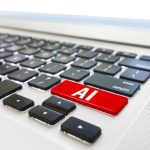Efforts to reduce energy consumption and automate decision-making have taken a new direction at a Conch Group cement plant, where Huawei’s agentic AI system is actively predicting clinker strength and autonomously fine-tuning calcination parameters. This technology now enables over 90% prediction accuracy and delivers a 1% decrease in coal use—milestones previously managed only by experienced specialists. The implementation reflects a broader industry movement as businesses look for practical AI solutions that support operational efficiency, particularly amid rising energy costs and increased regulatory attention on industrial emissions. Adaptability and rapid response to on-site changes have become pressing needs for manufacturers and urban managers alike.
While agentic AI applications have attracted attention over the last year, earlier news coverage primarily highlighted theoretical potentials or limited pilot trials. Now, deployment at an industrial scale demonstrates greater reliability and measurable improvements over initial smaller-scale demonstrations, such as early AI process management or digital assistant use in administrative tasks. For instance, initial trials with agent-driven automation reported more modest efficiency gains and less autonomy, whereas Huawei’s partnership with Conch Group delivers specific accuracy and energy benchmarks, suggesting impact beyond proof-of-concept. The expansion to domains like cultural tourism and city management illustrates a shift from narrow experiments toward more deeply-integrated, multi-sector implementations.
How Does Huawei Build Agentic AI for Industry Needs?
Huawei’s approach to agentic AI rests on integrating robust AI infrastructure, foundation models, and agent development platforms that allow automated planning and execution. At the recent Huawei Cloud AI Summit, the company presented a roadmap addressing practical implementation in sectors such as finance, healthcare, chemical production, and autonomous driving. Zhang Yuxin, CTO of Huawei Cloud, explained that agentic AI moves beyond traditional response-based systems by providing autonomous computing capable of making dynamic business decisions.
“We are witnessing a shift where computing systems independently make decisions and dynamically allocate resources,”
Zhang stated. This autonomy marks a change in how enterprises tackle workflow optimization and efficiency goals.
What Infrastructure Overcomes AI Model Training Barriers?
Challenges in scaling up agentic AI prompted Huawei Cloud to develop its CloudMatrix384 supernodes, which use MatrixLink to combine general-purpose and intelligent computing in a hybrid system. This architecture targets inefficiencies in model training—especially for Mixture of Experts models—through parallel operation and high-speed data transfer, reducing processing idle time. Specialized storage further supports AI workloads. ModelBest, collaborating with Huawei, uses this setup for its MiniCPM model portfolio; these models, including MiniCPM foundation and multi-modal versions, have shown up to 20% gains in training efficiency, finding applications in sectors such as automotive and personal devices.
“Our MiniCPM series benefits significantly from Huawei Cloud AI Compute Service, achieving both energy and performance improvements over industry standards,”
noted Li Dahai, ModelBest’s CEO.
How Are Industries Applying Agentic AI in Practice?
Conch Group developed an AI-driven cement model with Huawei that keeps clinker strength predictions within 1 MPa of laboratory results, automating quality and energy optimization for end-to-end manufacturing. This deployment, described by Xu Yue, Assistant to Conch Cement’s General Manager, as a shift “from relying on traditional expertise to being fully driven by data across all processes,” exemplifies full-spectrum digital transformation in heavy industry. Meanwhile, in the cultural tourism sector, Shaanxi Cultural Industry Investment Group partnered with Huawei to integrate data from film, history, and intangible heritage, producing a national dataset for digital asset management and AI-powered tourism tools. Internationally, Dubai Municipality leverages Huawei’s platforms for city planning and facility management using AI-driven digital twins and virtual humans, streamlining both operations and emergency response.
In addition to manufacturing and public administration, Smartcom has launched a travel agent on Huawei Cloud Versatile, offering automated trip planning that combines travel data, company policies, and employee histories. Users accept over half of its recommendations, typically finalizing arrangements in less than two minutes, and most issues resolve after just three exchanges with the agent. These operational results highlight the contrast with consumer-grade AI assistants, as enterprise solutions must function within complex, high-stakes workflows and meet strict reliability standards.
The adoption of agentic AI marks a measured but notable shift toward autonomous business operations in multiple sectors. While previous announcements emphasized theoretical improvements or isolated pilot programs, current case studies provide quantifiable enhancements in manufacturing accuracy, resource efficiency, and management speed. Such advancements require considerable investment in underlying infrastructure, integration expertise, and governance to ensure systems perform reliably and align with business outcomes. Enterprises looking to deploy agentic AI should focus on strong partnerships, data readiness, and realistic operational targets to capture value while managing the challenge of transitioning from manual to autonomous practices.
- Huawei’s agentic AI helps automate decision-making in industrial production.
- Integration with Conch Group led to measurable energy and efficiency benefits.
- Agentic AI is being applied in cultural tourism, urban management, and travel planning.










